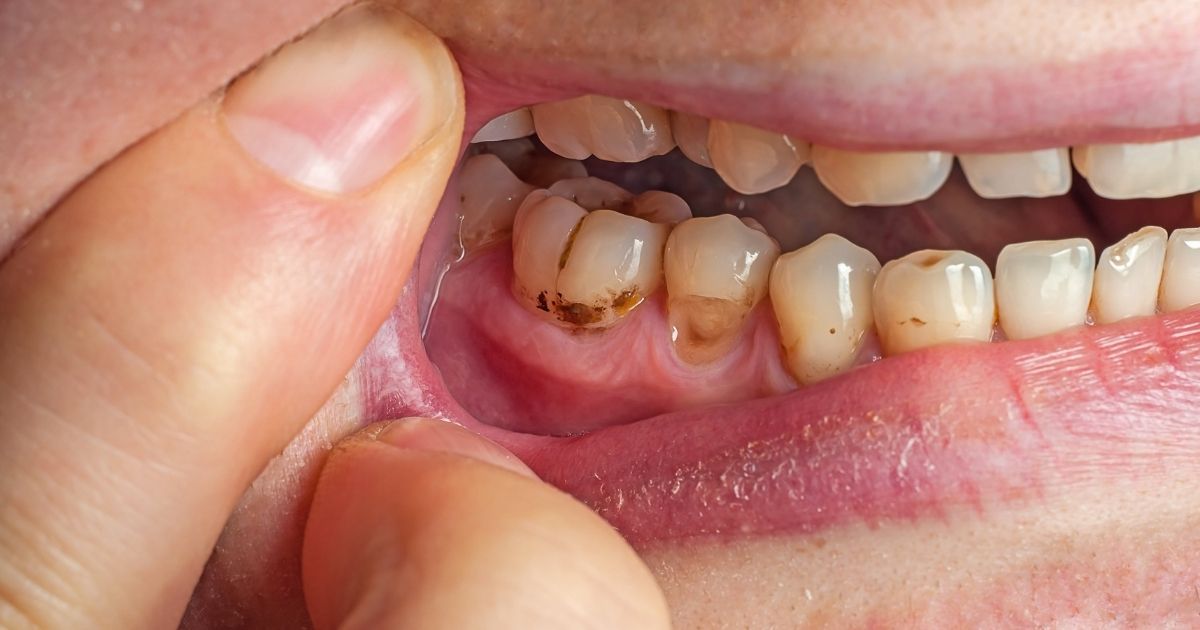Bad mouth hygiene: effects & tips for improvement
Maintaining good oral hygiene is essential for overall health and well-being, after all, your mouth is a very important part of the body.
Unfortunately, many people in the UK still underestimate the importance of dental care, leading to widespread issues with poor dental hygiene.
This article will explore the long-term effects of poor oral hygiene, provide practical oral hygiene tips, and discuss the numerous health benefits of maintaining a clean and healthy mouth.
Reading time: 3 minutes

What are the effects of poor oral hygiene?
Bad mouth hygiene can have numerous detrimental effects on both oral and overall health. When oral hygiene is neglected, plaque (a sticky film of bacteria) builds up on the teeth. This can lead to various dental problems, including:
- Tooth decay and cavities: Plaque bacteria produce acids that erode tooth enamel, leading to cavities. If untreated, this can result in severe tooth pain and tooth loss.
- Gum disease: Plaque build-up can cause gingivitis, an inflammation of the gum line. If not addressed, this can progress to periodontitis, a serious gum disease that damages the soft tissue and bone supporting the teeth.
- Bad breath: Poor oral hygiene often results in halitosis (bad breath), caused by the build-up of bacteria in the mouth.
- Tooth loss: Severe periodontal disease and untreated tooth decay can lead to tooth loss, affecting chewing and speaking abilities.
Long-term effects of poor oral hygiene
The implications of bad mouth hygiene extend beyond oral health issues. Research has shown links between poor oral health and several serious health conditions:
- Heart disease: Bacteria from the mouth can enter the bloodstream, contributing to plaque build-up in arteries and increasing the risk of cardiovascular disease and stroke.
- Diabetes: Poor oral hygiene can make it harder to control blood sugar levels, worsening diabetes symptoms. Diabetes can also increase your chance of developing a condition known as dry mouth, further negatively impacting your oral health.
- Respiratory infections: Inhaling bacteria from infected teeth and gums can lead to respiratory issues, including pneumonia.
- Pregnancy complications: Gum disease has been linked to premature birth and low birth weight in babies.
Why is dental care important?
Given the serious consequences of poor oral hygiene, maintaining good dental health is crucial. Regular dental care helps prevent the build-up of plaque, cavities, and gum disease, reducing the risk of tooth loss and other health complications.
Additionally, a healthy mouth contributes to overall well-being, self-confidence, and quality of life.

Tips for good dental health
Here are some good oral hygiene tips for practising good oral hygiene to help you maintain a healthy mouth:
- Brush regularly: Brush your teeth at least twice a day with fluoride toothpaste. Use a toothbrush with soft bristles and replace it every three months.
- Floss daily: Flossing removes plaque and food particles from between the teeth and under the gumline, areas a toothbrush can't reach.
- Use mouthwash: An antibacterial mouthwash can help reduce plaque and prevent gum disease.
- Limit sugary foods and drinks: Sugar promotes plaque build-up and tooth decay. Opt for healthier snacks and drinks to protect your teeth.
- Regular dental check-ups: Visit your dentist at least twice a year for professional cleanings and check-ups. Early detection of dental issues can prevent more serious problems.
- Stay hydrated: Drinking water helps wash away food particles and bacteria, keeping your mouth clean.
- Avoid tobacco products: Smoking and chewing tobacco increase the risk of gum disease, tooth loss, and oral cancer.
Ways to improve oral hygiene
Improving oral hygiene requires consistency and adopting good habits. Here are some additional ways to enhance your oral health:
- Chew sugar-free gum: This stimulates saliva production, which helps neutralize acids and wash away food particles.
- Eat a balanced diet: Foods rich in calcium and vitamins A and C are vital for strong teeth and healthy gums.
- Use dental tools: Consider using interdental brushes or water flossers to clean between teeth more effectively.
- Educate yourself: Stay informed about oral hygiene practices and the latest dental health research.
Health benefits of good oral hygiene
Maintaining good oral hygiene offers numerous health benefits, including:
- Preventing tooth decay and gum disease: Regular brushing and flossing removes plaque, preventing cavities and gum disease.
- Fresher breath: A clean mouth reduces the likelihood of bad breath.
- Better overall health: Good oral hygiene can reduce the risk of serious health conditions such as heart disease, diabetes, and respiratory infections.
- Enhanced self-confidence: A healthy smile boosts self-esteem and confidence in social interactions.
Conclusion
Good oral hygiene is fundamental to maintaining overall health and well-being. By understanding the risks associated with bad mouth hygiene and implementing practical tips for good dental health, you can significantly improve your oral hygiene.
Remember, regular dental care, a balanced diet, and good habits are essential to keeping your mouth healthy and avoiding the long-term effects of poor oral hygiene.